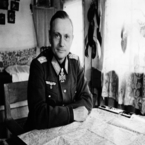xhoel
Posts: 3219
Joined: 6/24/2017
From: Germany
Status: offline

|
T17, 9th of October-16th of October 1941
AGN
The Soviet Air Force continued its efforts to resupply the Leningrad by air last week too. Their efforts were relatively successful as intelligence reports indicate that around 9 front line formations received supplies by air, improving their combat capabilities considerably. The news was not recieved well in the Headquarters of Army Group North at Pskov. Orders from the OKH are to take Leningrad by the end of the week no matter what.
To make sure the assault on the major urban center is successful AGN has received 19 Pioneer Battalions, 3 Werfer Battalions, 1 Werfer Regiment, 5 Assault Gun Battalions (Stug), 1 Flammpanzer Battalion as well as 38 independent Gun/Howitzer Battalions of which 4 are Heavy Howitzer Battalions.
The plan calls for the X Corps and the crack II Corps (both corps are part of the16th Army) to break through Soviet defenses and take the city. In total, 6 infantry divisions with various other divisions in reserve. Due to the heavy AA presence in the city, the assault will be conducted without a preemptive air bombardment and without air support. Generalleutnant Karl Strecker, the commander of the II Corps leading the assault is hoping that the massive artillery concentration will do what the Luftwaffe couldn't.

Battle for Leningrad
*disclaimer: The following is a detailed account of the battle of Leningrad. If you wish to just know the result skip to the end. This part of the AAR is only for flavor.*
At dawn on the 9th of October the cold still air around Leningrad was pierced by a rain of fire and fury, falling on the belaguered city at an intensity not seen before on the Eastern front. For 2 hours straight 1.600 German guns bombarded Soviet ammo dumps, strongholds and fortifications. After the guns stopped, with the city in flames, German Pioneer Squads in forward positions begun the painstaking difficult task of clearing obstacles and minefields, clearing Soviet forward bunkers and identifying safe avenues from which the infantry of the X and II Corps could advance. The artillery fire had shredded Soviet positions in certain sectors to pieces, but in other sectors, as the pioneer squads would see soon enough, the Soviets remained heavily entrenched, offering bitter resistance from various strong points, supported by heavy machine gun and mortar fire.

Troops of the crack 12th ID inside Leningrad.
By the end of the 9th our units had managed to take the Gaza district but heavy fighting raged on everywhere else. On the following days, the battle detoriated into house to house fighting as the ferocity of the Soviets increased with each meter lost. On the 11th the Soviet 35th Cavalry Division counterattacked forward German positions in the Vitebsk train station, catching the defenders of the 121st ID by surprise. Casualties mounted and by the 12th of October GL Strecker informed the 16th Army HQ that his forces were exhausted, having been figthing non stop for 4 days in street to street encounters with stiff Soviet resistance. The assault on Leningrad had failed. On the evening of the 12th Generaloberst Busch, commander of the 16th Army radioed Strecker to switch to the defense and wait for relief to arrive.

The first assault on Leningrad.
At 2:25 am GO Busch telephoned the HQ of the I Corps and asked for Model to be put on the phone. After exchanging words, a grim looking Model ordered for his Storch plane to be made ready to fly to Tosno, where the HQ of the 18th Army was located. Further south, GO Busch gave similar orders. The meeting that took place in the early morning of the 13th of October was quick and Model was informed that Operation Graufuchs (grey fox), the subsequent assault on Leningrad, should Streckers assault fail was to be launched immediately. Both GO Bush and GO Kuechler made it clear to Model that Leningrad was to fall before the weather turned, no matter the cost!

Movement into and out of Leningrad on the 13th continued non stop as the exhausted formations of the II and X Corps left their place on the battlefield to the fresh I and XXVI Corps. The plan for the subsequent assault on the city had been in the making for at least 2 weeks now, but everyone had hoped that it would not come to that, as Streckers assault would surely succeed. Reality however proved differently.
With his troops in position on the 13th Model gave orders for the assault to begin on the 14th at dawn, after artillery had bombarded what was left of the Soviet positions.
On the 14th after another heavy bombardment, led by the battle hardened troops of the I Corps our units managed to take the Liteynyy district separating the Soviet defenders in two. Defending on the east was the 216th Rifle Division, the 220th Rifle Division as well as the 30th Fortified Region defended the Nevskyi district to the west. Fighting continued through the night as the ring around the 216th Rifle Division tighened. On the 15th, exhausted Soviet troops of the 216th RD, having spent their last ammunition, with food and supplies running low surrendered to troops of the XXVI Corps.

Heavy fighting continued on the western side of the city. By midday our troops captured the Yevropeyskaya Hotel and by nightfall our Grenadiers were withing meters of the Astoriya Hotel. Seeing that the situation was helpless, the 220th RD was ordered to retreat across the Neva at night, leaving only blocking detachments to assist the 30th Fortified Region, holding onto the Winter Palace and the Admirality. The final assault took place on the night of the 15th -16th of October. The Prussian 1st Infantry Division, Models best unit, was ordered to take the Winter Palace and the Admirality. At 7:23 am the division radioed back to the I Corps HQ that the Palace had fallen. Leningrad was in our hands.

The objective of Army Group North was completed albeit at a heavy cost. 900 men were killed on the assault on Leningrad, while another 700 were WIA/MIA. Soviet losses amounted to 25.000 men as well as over 1.000 guns. 1 Rifle Division, 1 Fortified Region and 5 AA Regiments were destroyed in the fighting. The norther part of Leningrad remains in enemys hands however.
With the fighting for Leningrad concluded, AGN ordered the I Corps to prepare to transfer to the sector of AGC. Various other units of the 18th Army as well as the II and X Corps of the 16th Army were pulled back from the front to recover from the losses. The 4th Panzer Group completed its move to the AGC sector and both panzer corps are now awaiting for orders.

South of Novogorod the XXVIII Corps attacked a Soviet Rifle Brigade forcing it to rout. Further south the Soviets recaptured Peno, taking advantage of the XX Corps open flank. The 122nd ID was transferred to the sector and the Soviets won't be able to advance further. Air assets are being transferred from the north to the AGC sector. Only fighter and stuka groups remain in the north.


< Message edited by xhoel -- 11/21/2018 12:58:03 AM >
_____________________________
|
 Printable Version
Printable Version

























































































 New Messages
New Messages No New Messages
No New Messages Hot Topic w/ New Messages
Hot Topic w/ New Messages Hot Topic w/o New Messages
Hot Topic w/o New Messages Locked w/ New Messages
Locked w/ New Messages Locked w/o New Messages
Locked w/o New Messages Post New Thread
Post New Thread